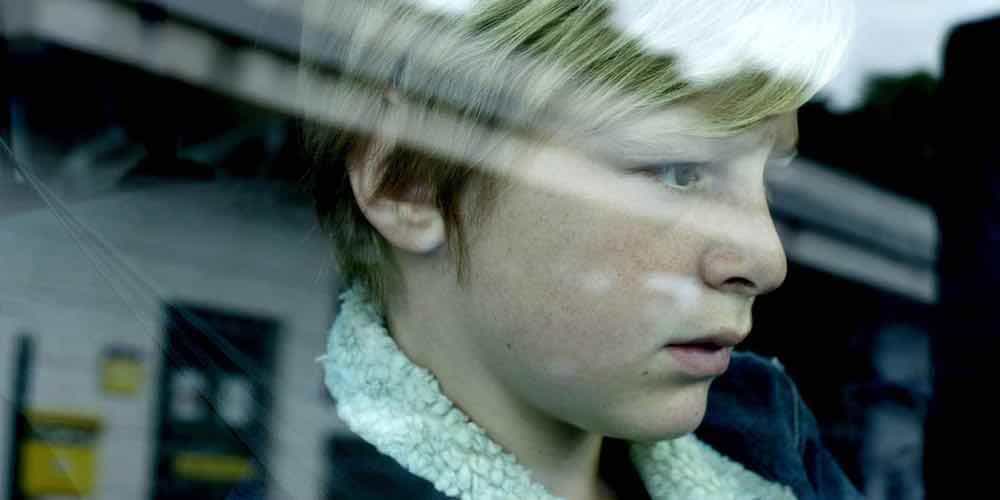
The first time eight-year-old Julien (Thomas Gioria) must spend the weekend with his father, Antoine (Dénis Ménochet), in Xavier Legrand’s Custody, it’s an ordeal. It’s the start of the new custody agreement between his parents. He doesn’t want to go, and his mother Miriam (Léa Drucker) is sympathetic to his plight, lying to Antoine that he’s sick. But the excuse doesn’t work. As Antoine leaves his mother’s house, shutting the door, walks to the front gate, opens and closes it, and gets into his father’s car, it feels like he’s just crossed enemy lines. The camera follows Julien on this journey from parent to parent at eye level, completely immersing us in his perspective. It’s a compelling and suspenseful scene that showcases Legrand’s skill as a director. But it’s also indicative of the film’s biggest weakness: the film is more about the idea of a custody battle and its aftermath than the specific realities of this one.
To illustrate how arbitrary the legal side of a custody battle can seem and how helpless the parents feel, Legrand starts the film with the court proceedings. We get the facts about this dissolved marriage from dispassionate lawyers. The former couple remain quiet but concerned. Both sides appear to be lying about something. The mother claims the father is a violent stalker, but her evidence is suspect. The father claims he’s been victimized by her but lacks proof. What’s unclear is why they’re lying. Are they both pathological liars? Or is the mother crafting “a good lie” in an attempt to protect her son?
The rest of the film allows us to decide if the court’s joint custody order was the right decision. Specifically, Legrand interrogates whether this quick hearing was really adequate to make a judgement that will have such a profound effect on Julien’s life. There are early warning signs. As Antoine, Ménochet has a menacing presence: bulky, looming, and unafraid to take up space. He’s so intent on playing the victim that the mother’s slightly more straightforward approach is the easier to believe. Once Julien gets in the car with him for the first time, looking terrified, unwilling to even say ‘hello’, we suspect there’s truth to Miriam’s story. It takes little time before Antoine begins verbally bullying Julien, losing his temper easily and violently.
Legrand’s choice to tell the story almost entirely from Julien’s perspective effectively gets us invested in the outcome, feeling just how helpless Julien feels: he wasn’t even present during the proceedings that would determine his guardianship. The tradeoff is that we get little insight into the parents’ marriage or Julien’s insistence on protecting his mother. This means that Legrand’s film comes off as a generic story about the tropes of custody battles, instead of telling a highly specific story about this family’s custody battle. Miriam doesn’t get enough screen time for us to fully understand why she lied or how she felt about her husband. We also don’t fully understand how Antoine cornered his family into accepting his abuse for so long. None of the characters are developed outside of the custody battle context. Few details about them are ever revealed.
The weakness of the character development becomes especially apparent in the third act when things become predictable, right down to Chekhov’s gun. Legrand’s skill as a director only throws the weakness of the script into sharp relief. The film’s limitations become more obvious because of how well Legrand keeps us in his characters’ headspace for those tense final moments. We want to know more, but the film never delivers.

